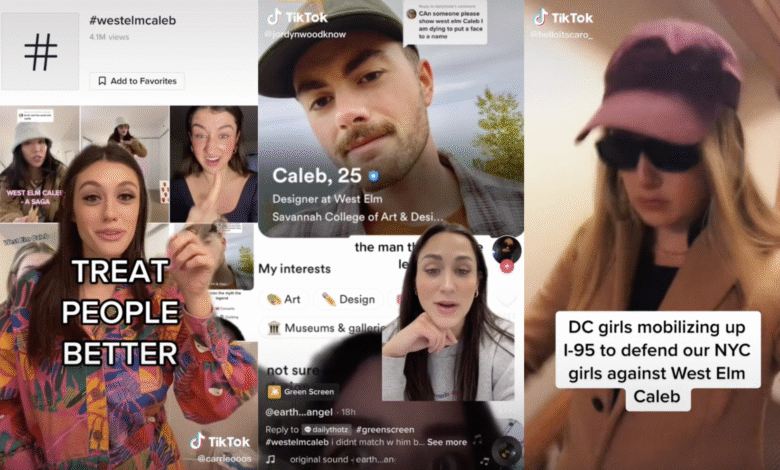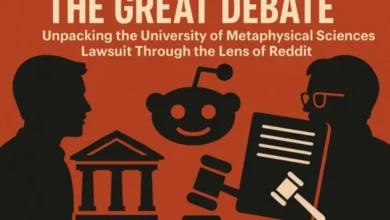West Elm Caleb: The Viral Dating Story That Took Over the Internet

Introduction: Who Is West Elm Caleb?
In early 2022, the name West Elm Caleb suddenly appeared all over TikTok, Twitter, and Instagram. Almost overnight, he became one of the most talked-about figures in the world of online dating drama. Caleb was not a celebrity, not an influencer, and not even someone particularly well-known outside of New York City. He was simply a man in his mid-twenties who happened to work as a designer for the popular furniture brand, West Elm. What made him stand out, however, was how his dating habits turned into a viral sensation.
The story began when several women discovered they had all been talking to the same guy on dating apps like Hinge and Bumble. Their shared experiences painted a picture of a man who was charming, quick to shower compliments, but also prone to ghosting and repeating the same lines with different women. Once TikTok creators started comparing notes publicly, the internet branded him “West Elm Caleb.” From there, the snowball effect took off.
This viral moment wasn’t just about one man’s dating choices—it became a larger conversation about modern dating culture, online shaming, and how quickly personal stories can spiral into internet-wide discourse. The saga of West Elm Caleb is a case study of how digital platforms amplify private lives into public scandals within hours.
The Rise of West Elm Caleb on TikTok

The term “West Elm Caleb” originated on TikTok, where young women began posting short videos about their dating experiences in New York. Initially, it seemed like harmless storytelling, where women vented about the challenges of dating in the city. But as more and more women chimed in, a pattern began to emerge: the same tall, mustached guy named Caleb, who worked at West Elm, had been using similar tactics with multiple women.
What caught people’s attention was how oddly specific the details were. For example, Caleb was known for sending Spotify playlists to women he matched with, often making them feel like the playlists were curated just for them. As it turned out, many women received nearly identical playlists, with little personal customization. This revelation struck a nerve because it showed just how performative online dating can be—people often reuse the same strategies to win over different matches.
TikTok thrives on collective storytelling, and that’s exactly what happened here. Women stitched and duetted each other’s videos, sharing their personal encounters with Caleb. What might have been a small dating anecdote turned into a viral narrative. Within days, West Elm Caleb was no longer just a person—he had become a symbol for the pitfalls of modern dating and the duplicity that can exist in online romance.
The Internet Reacts: Hero or Villain?
Once West Elm Caleb’s name went viral, the internet immediately polarized into different camps. On one side, many viewers saw him as the quintessential “bad dater”—someone who love-bombed, overpromised, and ghosted without explanation. These critics argued that Caleb’s behavior was manipulative, careless, and emblematic of a wider problem in contemporary dating culture.
On the other side, however, some people felt the backlash was disproportionate. After all, Caleb wasn’t accused of anything criminal or abusive—he was essentially guilty of being a poor communicator and perhaps a bit too eager with his dating strategies. In that sense, many people argued that he didn’t deserve the level of internet shaming he received. His name, job, and even workplace were exposed, which raised questions about privacy and cyberbullying.
This divide highlighted the tension between holding people accountable for questionable dating behavior and recognizing the dangers of online pile-ons. Caleb may not have been an angel, but turning him into a meme raised ethical questions. Should someone’s private dating life be turned into viral entertainment? Where do we draw the line between venting and harassment?
West Elm Caleb as a Reflection of Modern Dating
Beyond the drama, the West Elm Caleb saga tapped into a larger cultural phenomenon: the challenges of dating in the digital age. Many people resonated with the story not because they knew Caleb, but because they had experienced something similar. Whether it’s ghosting, breadcrumbing, or love-bombing, these terms have become part of the modern dating vocabulary—and Caleb’s story embodied all of them.
For women who shared their experiences, Caleb represented the type of guy who treats dating apps like a numbers game. By sending out the same messages, playlists, or lines to multiple people, he maximized his chances of making connections without putting in much personal effort. To many, this felt shallow and disappointing, reinforcing the idea that online dating often lacks authenticity.
At the same time, the virality of the story revealed how eager people are to find communal experiences. The fact that strangers bonded over their shared run-ins with Caleb shows how isolating online dating can be. When people realized they weren’t alone in being ghosted or misled, it gave them a sense of solidarity—even if it came at the expense of one man’s reputation.
Cancel Culture and the Question of Fairness
The case of West Elm Caleb also raises questions about cancel culture and accountability. Was the internet justified in turning his private life into a public spectacle? Or was this a prime example of disproportionate punishment for relatively minor misbehavior?
On one hand, public call-outs can serve as a way to warn others. Many women felt validated by the viral exposure, realizing that their experiences weren’t isolated. From that perspective, sharing stories about Caleb was a form of mutual support and awareness.
On the other hand, Caleb was not a public figure, nor did he voluntarily put himself in the spotlight. He became the target of ridicule, memes, and widespread gossip without any chance to explain his side of the story. Critics argued that while he may have been careless in his dating habits, the internet overreacted. His workplace, West Elm, was even dragged into the discourse, which seemed unfair given that his dating life had nothing to do with his job.
This situation highlights the double-edged sword of social media. While it empowers people to share experiences, it also blurs the line between accountability and harassment.
The Legacy of West Elm Caleb
Even though the West Elm Caleb trend eventually died down, its impact lingers in the way people talk about dating and internet culture. For a brief moment, Caleb wasn’t just a person—he was a symbol of everything frustrating about online dating. His story sparked countless think pieces, podcasts, and social media debates, proving how much people enjoy dissecting modern romance.
Interestingly, the saga also became a cautionary tale for both daters and internet users. For daters, it showed that repetitive or insincere tactics might backfire, especially in an era where everything can be screenshotted and shared. For internet users, it was a reminder of how quickly someone can be thrust into the public eye without consent, facing a level of scrutiny that far outweighs their actions.
In the end, West Elm Caleb may fade as a viral figure, but the conversations he sparked remain relevant. The story speaks to the realities of dating apps, the ethics of online shaming, and the way social media magnifies personal behavior into cultural phenomena.
Conclusion: What We Can Learn From West Elm Caleb
The saga of West Elm Caleb is more than just an internet curiosity—it’s a window into the complexities of dating and digital culture in the 21st century. While his specific actions may have been questionable, the reaction to them revealed much deeper issues: how people navigate relationships, how they process rejection, and how quickly the internet can turn private stories into public discourse.
If there’s one takeaway from this viral moment, it’s that authenticity and communication matter more than flashy gestures like curated playlists or clever one-liners. In a world where dating often feels transactional, people are still searching for genuine connections.
At the same time, the West Elm Caleb phenomenon reminds us to tread carefully when it comes to internet pile-ons. Everyone has flaws, and while it’s natural to vent about bad dates, turning a private individual into a global spectacle can cross ethical lines. Ultimately, his story isn’t just about one man—it’s about all of us navigating love, technology, and the sometimes harsh spotlight of the digital age.



